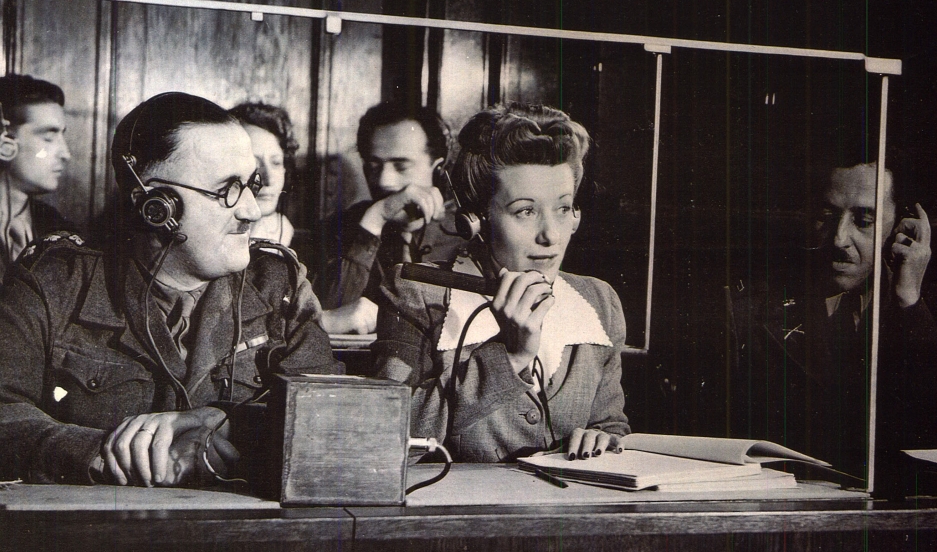As I have already shared here on the website, I have a degree in filmmaking and, of course, I really like films. One day, my teacher at Alumni Association told us to study the Nuremberg Trial and its relationship with simultaneous translation.
I quickly remembered a movie that my father had shown me years before: Judgement at Nuremberg, by Stanley Kramer (1961).
The film centers on a military tribunal that occured after World War II, in Nuremberg, Germany, in which four German judges and prosecutors stand accused of crimes against humanity for their involvement in atrocities committed under the Nazi regime.
The whole trial would last a long time and its logistics would be very complex, were it not for the simultaneous translation that made the whole thing much easier.
I explain here: there were four main languages spoken by witnesses, lawyers, defendants, prosecutors and etc. – German, English, French and Russian. Thus, a consecutive translation would be impossible, for the trial would be too long.
Colonel Leon Dostert, who was General Eisenhower’s interpreter, had to resolve the situation. Dostert summoned interpreters who already did consecutive translation and other professionals with extensive linguistic knowledge and after months of training, with the help of IBM equipment (which saw an excellent advertising opportunity at the time), the tribunal was possible and the simultaneous translation was carried out in a similar way that we do now.
I had a blast watching that movie again, now with a different perception. I imagined how nervous those people were probably feeling to take on such a serious and intense commitment. Interpreters worked in shifts, sometimes with simultaneous translation and sometimes translating documents that would be used during the trial.
It’s an incredible film, so for those who work in this area and for those who don’t, it is a nice suggestion! Below is a small excerpt ( it doesn’t seem so hard, but can you imagine doing this for the first time, in such an important situation, at a time when there was no Google to lend a helping hand? – So, would you do it?)

